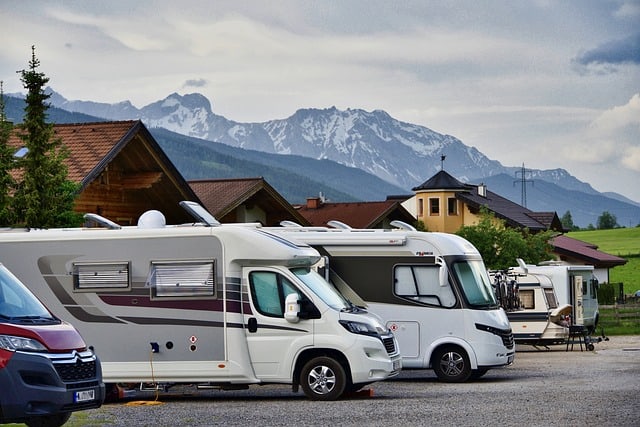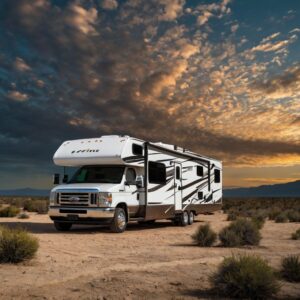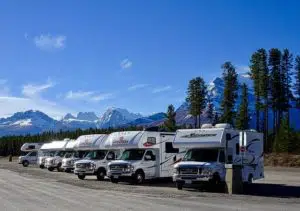If you make a purchase using the links in this article, we may make a commission. And, as an Amazon Associate, I earn from qualifying purchases. See the full disclosure here.
RV Motorhome Gas or Diesel?
When it comes to choosing a motorhome for your RV adventures, the debate between gas and diesel engines is a hot topic. Both options have their merits, and the right choice ultimately depends on your specific needs and preferences. In this article, we will delve into the pros and cons of gas and diesel motorhomes, providing you with the information you need to make an informed decision.
Cost
Let’s start with cost, a crucial factor for many RV enthusiasts. Gas motorhomes typically have a lower initial purchase price compared to their diesel counterparts. This is due to the higher manufacturing costs associated with diesel engines. However, it is important to consider the long-term maintenance and operational costs. Diesel motorhomes tend to have better fuel efficiency, allowing you to save on fuel expenses in the long run. Additionally, diesel engines are generally more durable and have longer lifespans, resulting in potentially higher resale values. On the other hand, gas motorhomes have a lower cost of maintenance and repairs, as well as more readily available parts, which can help offset their initial higher fuel consumption.
Diesel
Now, let’s explore a lesser-known aspect of diesel motorhomes: – Diesel Exhaust Fluid (DEF). DEF is a fluid that is required by diesel engines to help reduce harmful emissions and meet environmental standards. It is important to note that if you don’t own a diesel vehicle, you may not be familiar with DEF. DEF is an additional expense that diesel motorhome owners need to consider, as it requires regular refills. This expense may seem negligible compared to the overall cost of owning a diesel motorhome, but it is worth factoring into your budget. However, DEF plays a critical role in reducing nitrogen oxide emissions, ultimately contributing to cleaner air and a healthier environment. So, while it may add a slight financial burden, it is a necessary component for diesel motorhomes and a responsible choice for eco-conscious RVers.
One common misconception about diesel engines is that they are “dirty” and emit more harmful pollutants compared to gas engines. However, advancements in diesel engine technology have significantly reduced emissions, making modern diesel motorhomes cleaner and more environmentally friendly than ever before. Diesel engines now come equipped with sophisticated catalytic converters, particulate filters, and other emission control systems that effectively reduce harmful gases. In fact, diesel engines typically produce lower carbon dioxide emissions compared to gas engines. This makes them a favorable choice for those who prioritize reducing their carbon footprint while still enjoying the freedom of RV travel.

Gasoline
One of the prime advantages of gasoline motorhomes is their affordability. Gasoline engines typically have a lower upfront cost compared to diesel engines, making them an attractive option for those on a budget. Furthermore, gasoline motorhomes tend to have lower maintenance and repair costs, as their parts and services are generally more readily available and less expensive. So, if you’re looking for an economical option that doesn’t break the bank, a gasoline motorhome could be your best bet.
Fuel
Another compelling reason to consider a gasoline motorhome is the availability and accessibility of fuel. Gasoline is widely available across the country, from small towns to remote areas. This makes refueling your RV hassle-free and ensures that you won’t have to plan your routes around fuel station availability. Additionally, gasoline motorhomes offer the convenience of being able to fuel up at regular gas stations, avoiding the need to locate specific diesel fuel spots. This flexibility allows for more spontaneous trips
and the freedom to explore even the most remote destinations without worrying about finding suitable fuel sources.
Comfort
Gasoline motorhomes also offer a smooth and comfortable driving experience. Gasoline engines generally provide quieter operation and smoother acceleration compared to diesel engines. This can make a significant difference in your overall comfort while on the road, especially during long trips or when maneuvering through challenging terrains. The smoother ride and reduced engine noise will allow you to relax and enjoy the journey, enhancing your overall RVing experience.
Furthermore, gasoline motorhomes are often praised for their responsiveness and ease of maintenance. Gasoline engines are generally simpler in design and require less complex maintenance routines compared to their diesel counterparts. This can translate to fewer trips to the mechanic and lower servicing costs. Additionally, as gasoline engines are commonly used in a wide range of vehicles, finding mechanics and technicians who are experienced in servicing and repairing them is relatively effortless.
Conclusion
In conclusion, the decision between a gas or diesel motorhome ultimately comes down to personal preferences and specific needs. While gas motorhomes may have a lower upfront cost and lower maintenance expenses, diesel motorhomes offer better fuel efficiency, potential long-term savings, and higher resale values. It is also important to consider the added expense of Diesel Exhaust Fluid (DEF) for diesel motorhomes, as well as the environmental benefits and advancements in diesel engine technology that have reduced emissions. Ultimately, it is crucial to weigh all these factors, and evaluate your budget, driving habits, and lifestyle to make an informed decision that aligns with your RVing goals. Whether you choose gas or diesel, both options provide incredible opportunities for RV adventures and unforgettable memories on the open road.


